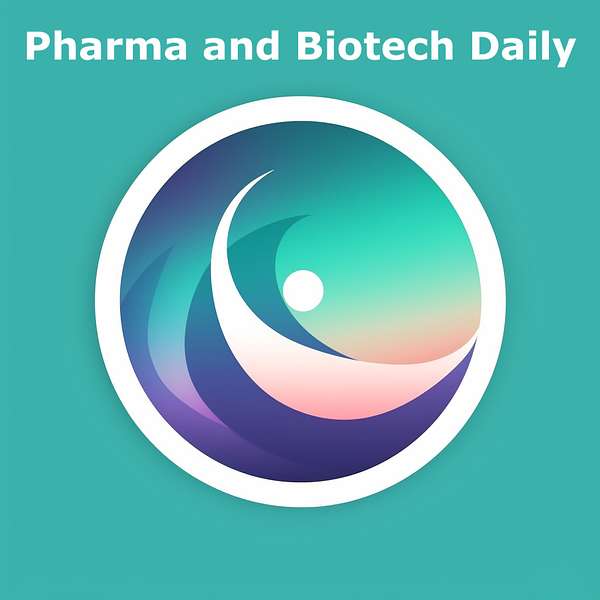
Pharma and BioTech Daily
Pharma & Biotech Daily is a short, AI-generated, human-supervised briefing on what’s important in pharma and biotech.
Each weekday we condense key news on pipelines, deals, regulation and strategy into a quick audio update for people who build, run and invest in life sciences.
Produced by OWITH.ai, a boutique AI & data studio.
Sponsor the show: https://sponsor.owith.ai
Pharma and BioTech Daily
Precision Oncology and HIV Prevention Breakthroughs
•
Pharma Daily
•
Season 1
•
Episode 547
Use Left/Right to seek, Home/End to jump to start or end. Hold shift to jump forward or backward.
Good morning from Pharma Daily: the podcast that brings you the most important developments in the pharmaceutical and biotech world. Today, we're diving into a series of fascinating advancements and strategic movements that are shaping the landscape of drug development and patient care.Starting with a significant milestone in precision oncology, China has approved its first EGFR-targeted antibody-drug conjugate. This approval marks a pivotal moment in the industry’s shift towards targeted therapies, which promise more precise treatment options with potentially fewer side effects than traditional chemotherapy. Targeted therapies are at the forefront of personalized medicine, where treatments are tailored to individual genetic profiles, offering hope for more effective cancer care.In the realm of HIV prevention, Gilead Sciences has reported impressive sales for its new long-acting pre-exposure prophylaxis medication, Yetztugo. Since its launch in June 2025, Yetztugo has generated $54 million in U.S. sales, underscoring the demand for long-term HIV prevention solutions. This development is part of Gilead's broader strategy to strengthen its HIV franchise as it advances its pipeline with promising candidates like GS-3242 alongside lenacapavir. The aim is to develop treatments that require less frequent dosing, which could significantly improve patient adherence and outcomes. Despite challenges within its HIV portfolio and declining Veklury sales, Gilead Sciences is actively seeking growth opportunities through strategic partnerships and pipeline advancements—an essential approach for navigating patent cliffs while sustaining long-term growth.On the financial front, AbbVie has increased its revenue forecast by $400 million to a staggering $60.9 billion, driven by robust sales from its immunology drugs Skyrizi and Rinvoq. These treatments address chronic inflammatory conditions like psoriasis and rheumatoid arthritis, reflecting AbbVie's strong positioning in this therapeutic area despite competitive pressures. AbbVie continues to report strong earnings from Skyrizi and Rinvoq, reinforcing its dominance in the immunology market and highlighting the profitable nature of successful biologics in treating chronic inflammatory diseases.Biogen continues to bolster its multiple sclerosis franchise by focusing on both legacy treatments and new product launches. This strategy highlights the importance of balancing innovation with lifecycle management to maintain market strength against generic competition—a common challenge in the industry.Meanwhile, the American Academy of Pediatrics has taken a cautious stance by not endorsing leucovorin for autism treatment due to insufficient evidence. This decision emphasizes the critical need for rigorous, evidence-based practices in developing clinical guidelines for complex disorders like autism.Internationally, CSL Seqirus has partnered with Saudi Arabia to supply cell-based influenza vaccines and support local production capabilities. This move aligns with global efforts to enhance pandemic preparedness and healthcare resilience through local manufacturing initiatives.The volatile nature of the biotech sector is evident with reports of 16 companies ceasing operations in 2025 due to high R&D costs and regulatory challenges. Despite these closures, such volatility opens doors for new innovations that could address unmet medical needs.Turning our attention to obesity treatment, Eli Lilly stands at a crucial juncture with its novel obesity medication, orforglipron. The company aims to make this weight loss pill accessible while maintaining financial viability for future R&D—a balancing act faced by many pharmaceutical companies as they strive to deliver affordable yet innovative treatments amid growing global health concerns. However, not all R&D efforts reach fruition. Eli Lilly has decided to discontinue its mid-stage program